
Theodore Horn
0
4913
244
What does being “smart” look like to you?
Hanging out at the library, nose buried in books? Staying up late into the night programming the next killer app? Sheldon Cooper on Big Bang Theory?
Or could it simply be organizing your routine, habits, and practices around getting a little bit smart each day?
Appearances aside, I'll vote for the latter. Here's 20 things you can do every day to boost your brainpower. You might look funny, but it might just be worth it…
1. Sprint into work (or school) in the morning
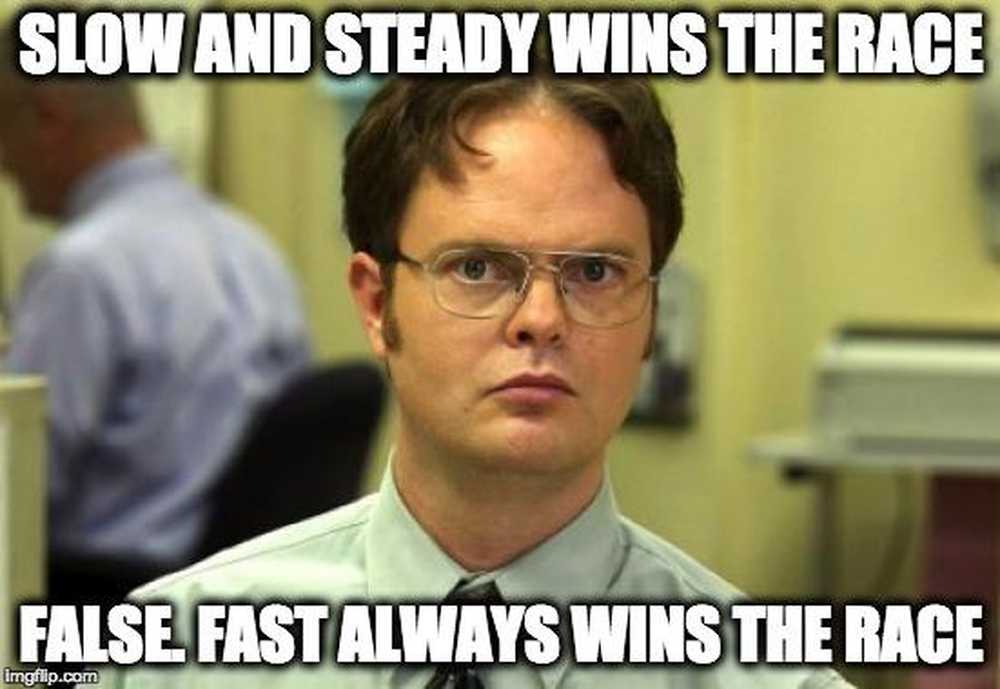
Needless to say, our brains are programmed for convenience. Everyone has that urge to park as close to the door of the building as possible. But if you want to give your brain a boost to start off the day, that might not be the best strategy.
Research has repeatedly shown that intense cardiovascular exercise gets blood and oxygen flowing to the brain, providing enhanced cognitive performance afterwards. It also activates nervous system (and shakes off that “sleepy” feeling), and releases the “miracle-grow” of brain chemicals: brain-derived neurotrophic factor (BDNF).
So if you want to seed your dome-piece with the ingredients for building new connections and brain cells quickly, start parking further away than you usually would. On your way into the office (or school) do 1 set of 5×30-second light sprints, with 30 seconds of rest in-between. This little 5-minute routine will get your body and brain ready to tackle the day at full mental capacity.
2. Wear these at night

(Photo: Robert Scoble)
Little did you know, blue light is making you dumber. Blue light from computer screens, artificial lighting, phones, TV's - you name it - impairs your body's ability to release the appropriate amount of melatonin at night, preventing you from falling deeply asleep and damaging the quality of your rest at night.
So what can you do? Blue light is friggin everywhere.
Well, you can slap on a pair of these bad boys! Problem solved. Thank you Bono.
Wearing blue-light blocking glasses simulates the sunset for your visual center, even though you're still surrounded by artificial light. This signals your body to releases more melatonin, promoting more deep and restful sleep that will leave you mentally recharged. And all without giving up indoor lighting or nighttime Facebook.
3. Do air squats at your desk
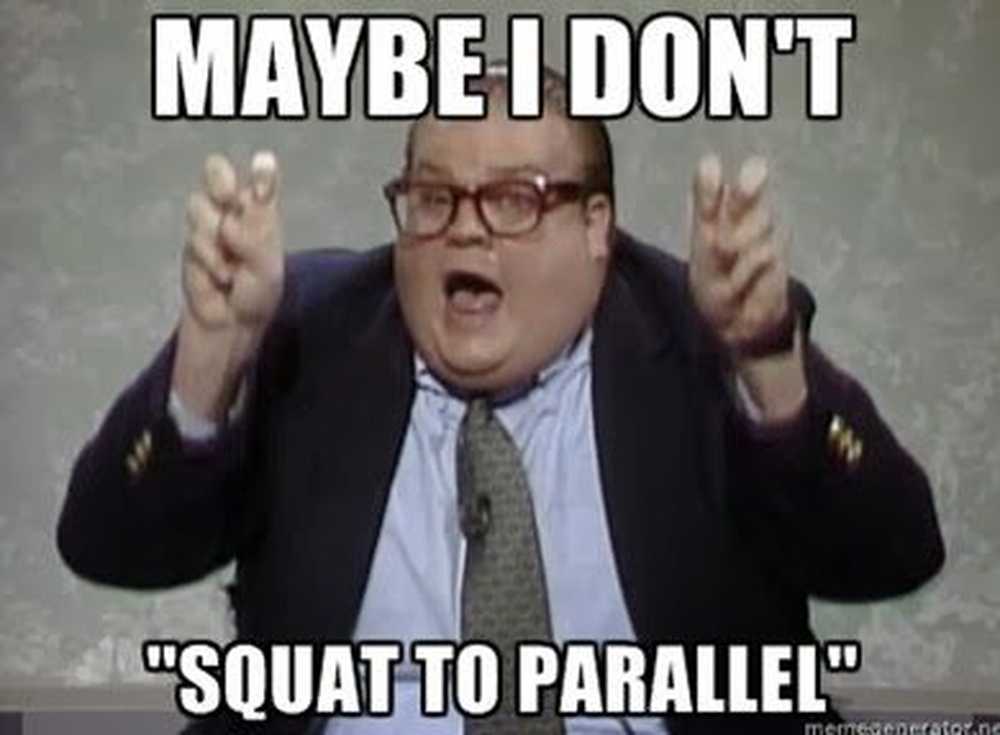
You've probably heard the news: sitting sucks for you. Not only for weight management, but also, it turns out, for mental performance.
“With a 1-mph walk after a meal, blood sugar peaks are halved.” ~Tai Lopez
“Indeed, the best business meeting would have everyone walking at about 1.8 miles per hour.” ~John Medina
Not only does light exercise stabilize blood sugar levels, requiring less insulin release, and lessening the devastating impact of post-meal crashes, it also keeps a steady flow of blood and oxygen headed to your cranium.
Now, these guys are talking about walking, but that isn't always practical if you're in an office or classroom. So instead, do AIR SQUATS. Work in 20 of these each hour during the day, especially after meals. Yes, you will look somewhat ridiculous, but hey - life is meant to be interesting. And while your co-workers or fellow students are fending off the drool after lunch, you'll be powering through in peak performance mode.
4. Carry around a stack of books

(Photo: Indi Samarajiva)
Reading can make you a smartypants, and no one is a more die-hard believer than author and infamous marketer Ryan Holiday. Advertising
So according to the man with the famous 40k+ subscriber reading recommendation list, if you want to read more:
“Carry a book with you at all times. Every time you get a second, crack it open. Don't install games on your phone-that's time you could be reading. When you're eating, read. When you're on the train, in the waiting room, at the office-read. It's work, really important work. Don't let anyone ever let you feel like it's not.”
Take it seriously. Go to Amazon, or your local bookstore right now and buy 5 books that interest you. Then, carry them everywhere you go for 2 weeks.
5. Wear a blindfold and put in earplugs
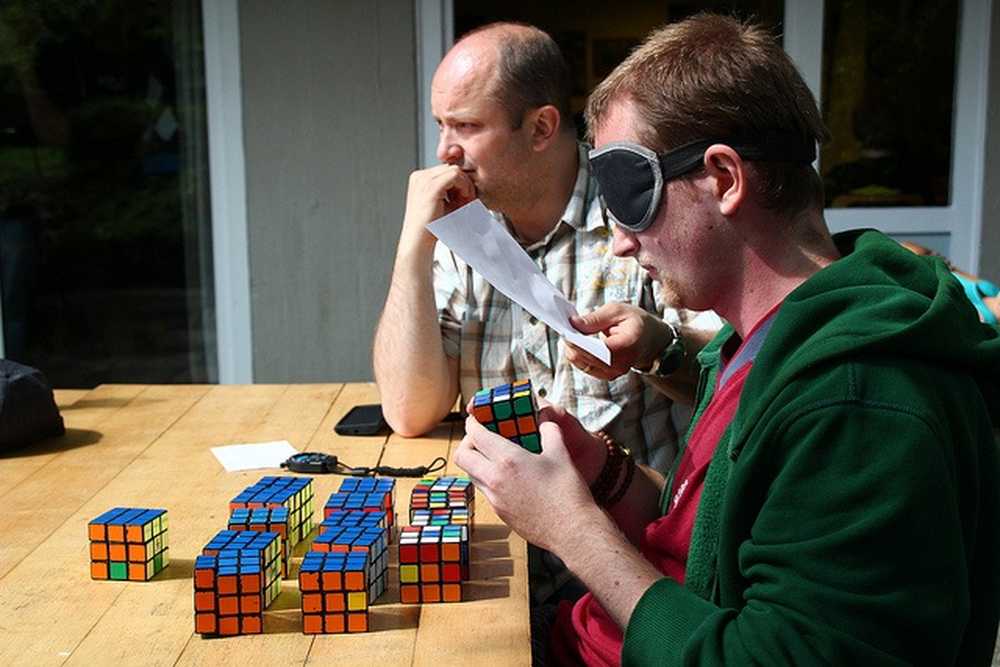
(Photo: Kai Multiblind)
In a world now, where according to Eric Schmidt of Google we generate more information in 2 days than we did for all of human history up to 2003, it can feel like we're on maximum sensory overload.
So it's not a surprise that things like sensory deprivation tanks have had a major resurgence of late.
“… flotation may enhance creativity and performance in a manner similar to that of sleep or meditation. Research has shown that during resting states the brain repeatedly rehearses newly learned skills and consolidates recently acquired knowledge for long-term storage. Some studies have also shown that the resting brain is particularly adept at synthesizing information from a wide range of brain areas to solve tough problems - something you may have experienced daydreaming in the shower.” ~Shelly Fan
Although not all of us have a float tank on hand, you can achieve (to a lesser extent) some of the same cognitive benefits each day by simply wearing a blindfold and earplugs and lying down for a quick recharge.
Taking 15 minutes after you come home in the evening to spend some time blindfolded and earplugged, not only will enhance your skill acquisition and memory capabilities, but will also give you the space to truly think that seems so hard to come by.
6. Balance in weird positions

(Photo: Frank Kovalchek)
To say that body and mind interact would be an understatement to a research writer like Alex Hutchinson, who recently wrote a piece on the cognitive benefits of the development of balance and proprioception.
“It is novelty and unpredictability, rather than repetition, that are essential to keep your brain engaged. A recent study by researchers in Denmark, Finland and Germany compared a group of 15 endurance-trained athletes, like runners and cross-country skiers, with a group of skill-trained dancers, gymnasts and figure skaters…
Both types of athletes have highly trained calf muscles, but endurance athletes use them repetitiously, in a way that the brain consigns to autopilot. Sure enough, plasticity in the area of the brain that controls calf muscles was no different between endurance athletes and nonathletes. In contrast, the dancers, gymnasts and skaters, for whom autopilot is not an option, showed dramatically higher plasticity: Their neurons were primed to keep learning new motor tasks.”
So not only should you be getting up from your desk regularly (a la item #3), add in some weirdo balance moves. Stand on one foot. Do some yoga poses. Do this while you're working, standing in line, etc. and enhance the intelligence of your “body brain.”
7. Fast like a caveman

We've all heard the term “brain food.” But what about the opposite?
“… we have ample evidence that intermittently depriving organisms of food has been shown to engender beneficial effects on many functions… The antifragility of humans manifests itself in the response with up-regulation of some genes in response to hunger.” ~Nassim Taleb, Antifragile
Now that mouthful from well-known investor and contrarian Mr. Taleb might not mean too much to you, but what he's basically saying is: short periods of fasting boost neural activity and mental health.
Plus thinking about eating is one less thing you'll be focused on during the day, freeing up mental resources.
A less extreme option to the full 24-hour fast is a shorter 16-hour intermittent fast each day. So see how long you can go each morning on just coffee or tea, and test how that affects your mental performance.
8. Agree with people you hate
Likeability is one of the biggest determinants of who you will, or won't believe. But unfortunately for the accuracy of your beliefs, whether someone is likable or not has zero to do with how correct they are. So we tend to dismiss the thinking of people we don't like too much, while holding on dearly to our beliefs which are confirmed by those we are more fond of. Advertising
Stack on top of that the fact that we have a bias towards information that confirms our beliefs anyway, and you have a recipe for some wacky, illogical thought patterns.
On the flip side, if you can combat these things you'll significantly improve your thinking.
“I never allow myself to have an opinion on anything that I don't know the other side's argument better than they do.” ~Charlie Munger
So next time you're listing to your favorite radio show, watching a talk on Youtube, or even listening to that co-worker everyone does their best to avoid, flip the script. Surprise the crap out of someone you usually disagree with, and agree with them for a day and see how that sharpens you're reasoning skills.
9. Become a notecard weirdo

(Photo: wsilver)
How many of us read book after book, blog after blog, but can't seem to remember or incorporate any of it into our lives?
Well back to Ryan Holiday again for our solution: becoming a notecard weirdo.
Holiday describes his notecard system (formally called a “commonplace book”), which works by forcing you to record only the most compelling information you find as you read and learn, and organize it in a way that you can easily reference later on.
After a month of doing this everyday, you'll be overflowing with good ideas. So go out and buy yourself some 4×6 notecards, a box, and go to town.
10. Study hot-dog eating contests (and other weirdness)

(Photo: dj0ser)
Read Next

10 Small Changes To Make Your House Feel Like A Home

What Makes People Happy? 20 Secrets of “Always Happy” People

How to Sharpen Your Transferable Skills For a Swift Career Switch
Scroll down to continue reading articleNow, you may never have eaten more that 2 or 3 hot dogs in a sitting, but in 2001 Takeru Kobayashi smashed the world record of 28 in 12 minutes and ate a whopping 50!
As the Freakonomics guys Steven Levitt and Stephen Dubner talk about in their book Think Like a Freak:
“What question were his competitors asking? It was essentially: How do I eat more hot dogs? Kobayashi asked a different question: How do I make hot dogs easier to eat?”
The takeaway here is that it's not always coming up with the right answer that makes you smarter, but asking the right questions.
So try it for yourself: search youtube for weird off-the-wall contests and games that you can study. Here's Kobayashi's 2001 record video. You can learn a lot by watching the strategy of people like Kobayashi in hot-dog eating, and people like Arthur Chu in Jeopardy. Study how they look at the world and what questions they're asking.
11. Hang out with toddlers

If you've ever spent more than 30 seconds around little kids, you quickly realize that their filter for bad ideas is permanently turned off. They haven't yet developed that “internal regulator” that edits ideas before they fly out of your mouth, and this allows them to generate the most interesting, off-the-wall ideas you've ever heard.
This is the essence of creative intelligence, and toddlers are masters at it.
Now, you'll never be able to quite reach their level of ridiculousness, but you can get close. Set aside some time (early in the morning or late at night usually work best) and turn off your filter. Write down 10 horrible, off-the-wall ideas each day. Over time, you'll start to see weird and wacky ideas pop up that just might be brilliant.
12. State the obvious
Another one from the Freakonomics guys: “don't be afraid of the obvious.” Usually the “next big idea” comes from studying what's right in front of you.
As Paul Graham, founder of famous startup fund Y Combinator says (from his post How to Get Startup Ideas), Advertising
“The way to get startup ideas is not to try to think of startup ideas. It's to look for problems, preferably problems you have yourself.
The very best startup ideas tend to have three things in common: they're something the founders themselves want, that they themselves can build, and that few others realize are worth doing. Microsoft, Apple, Yahoo, Google, and Facebook all began this way.
… Which means, strangely enough, that coming up with startup ideas is a question of seeing the obvious. That suggests how weird this process is: you're trying to see things that are obvious, and yet that you hadn't seen.”
Next time you're thinking about , ask “why” to the most obvious aspects of your experience. Why does it take so long at the post office? Why do we like watching TV? Why does food taste good? Whatever you're trying to figure out. Really think about the question and don't filter your answers (see #12).
13. Bet against yourself

(Photo: bark)
As much as we like to romanticize the “aha” moment of genius, much of the learning or skill development process is just making daily progress, regardless of how you feel. The problem is, when you don't feel like it, it's hard to overcome low motivation and put in the work to make progress.
So what we can do instead, is create artificial incentives that get you VERY motivated VERY quickly. Make it so that the negative outcome of NOT doing what you know you should be doing is SO PAINFUL, that you essentially have no choice but to get to work.
This is what economists and psychologists call “commitment devices” - and one of them is as simple as betting against yourself.
Next time you REALLY want to make progress on developing a new skill or learning something new, use a site like Stikk or Beeminder to throw down $5, $10, $50, even $1,000 which will swiftly disappear from your bank account if you don't meet your target. If that won't get you moving I don't know what will.
14. Tell wild stories
Joshua Foer, 2006 U.S. memory champion, and author of bestseller, Moonwalking with Einstein, developed the ability to successfully recall entire randomly shuffled decks of playing cards, from memory in minutes.
How did he, and other memory “athletes” accomplish these incredible mental feats? They get really good at telling memorable stories to themselves, which are connected to what they're trying to remember.
Because the human brain is built for storytelling, the more things you can link together into a narrative, the more readily you'll be able to recall them later on.
So next time you want to remember something, tell a friend about it, but create a wild and wacky story to go along with it. Learn about the origins of the idea and tell it in the most colorful way possible.
15. Write off-handed

Da Vinci was famous for his obsession with ambidexterity, and even wrote in his notebooks from right to left and backwards. But was he just an obsessive freak, or is there really a method to his madness?
It turns out that by writing with your off-hand, you can activating the opposing hemisphere of your brain that doesn't usually get as much “attention.” There's also some evidence that this improves the connection between your analytical “left-brain” skills and your more creative “right-brain” skills.
Regardless, what we definitely know is that by changing things up (and forcing yourself to concentrate on writing with the opposing hand), can get you out of a mental “rut” and force you to make new connections.
So try this: spend 15 minutes each day writing some percentage of your notes off-handed. Or try using the mouse, brushing your teeth, throwing around a football with your off-hand as well. Anything to activate that new motor pattern that doesn't feel “comfortable.”
16. Roll around on balls
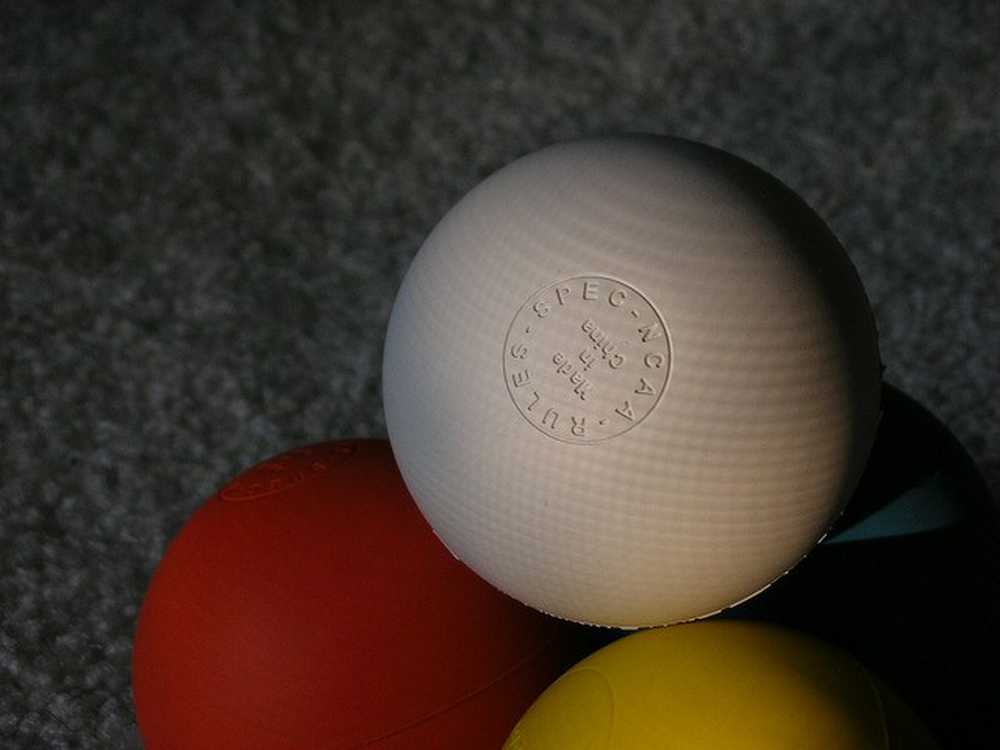
(Photo: upsidedownsphere)
Jill Miller, yoga and fitness pioneer, is an advocate of what you might call an “unconventional practice” - i.e. rolling around on balls.
Miller call this “body mapping” - developing proprioceptive sense of the different parts of your anatomy, which improves your kinesthetic awareness. Advertising
As she says in a recent interview:
“It can enhance the mobility of your soft tissues and awaken your proprioceptive sense (body sense)…
… They help you map your own anatomy and befriend it. Mapping yourself is empowering, it helps you to distinguish and differentiate your different parts so that they cooperate better as a whole. Each body part and YOU become more intelligent… ”
So if you want to improve your “body intelligence,” incorporate this into your routine: roll around on a lacrosse ball or tennis ball for 10 minutes each night before bed. Focus on the “sticky” spots where you experience pain or discomfort and spend more time working the soft tissues in those areas.
17. Go to bed when your grandparents do…
… but still get up when your friends do.

Getting a ton of sleep (7-9 hours) is largely underrated, but is essential for effectively consolidating new memories and forging newly developed neural pathways from whatever you learned that day.
“A full night's sleep includes a large dose of several distinct brain states, including REM sleep - when the brain flares with activity and dreams - and the netherworld of deep sleep, when it whispers to itself in a language that is barely audible. Each of these states developed to handle one kind of job, so getting sleep isn't just something you “should do” or need. It's far more: It's your best friend when you want to get really good at something you've been working on.” ~ Benedict Carey, New York Times reporter and author of How We Learn
So take a play out of your grandparent's book and hit the sack earlier than what's considered “socially acceptable.” Instead of setting a morning alarm, work backwards 9 hours and set a “bedtime alarm.” Your new and improved brain will thank you.
18. Eat the same meal every day
You know that feeling when you come back home from a long day at the office or in the classroom? You feel so drained you can't even figure out what to eat for dinner. This is the feeling that comes from complete and utter willpower depletion: you've used so much mental energy during the day making decisions, thinking, and solving problems, that your gas tank is now empty and you've become the equivalent of a “lump on a log.”
On the flip side, preserving willpower throughout the day can be a huge cognitive advantage. And one way to do that is to not make tiny decisions throughout the day about trivial things.
“According to Professor Baumeister, one simple way to preserve your banks of mental energy is by not wasting it agonising over needless decisions. He cites the case of president Obama, who generally only wears blue or grey suits so that deciding what to wear is one decision he doesn't have to make.” ~Josh Naish, DailyMail
In the same way as the president approaches his wardrobe strategy, one thing YOU don't want to waste that valuable executive power on is decisions about meals.
So instead of leaving it up until just before you eat to decide, pick a meal that you could see yourself eating every day for lunch. Plan out a week's worth and make it in batches each Sunday. In this case, boring is good, because it means you're not using valuable brain power making your meals “interesting” and you can spend that power on the more important stuff.
19. Sell your TV and delete your Netflix account
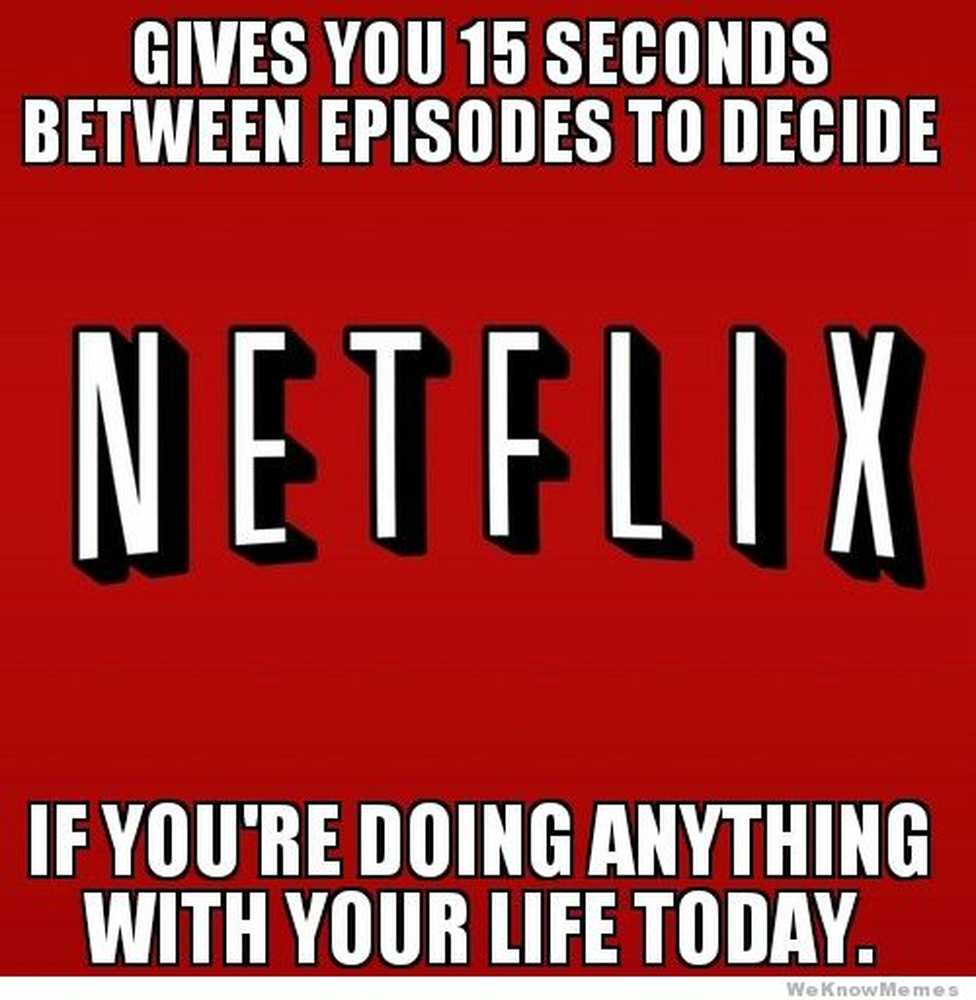
It's almost become a counter-cultural movement in itself. “We don't even OWN a TV,” has become a status statement - an attempt to display sophistication and intellectualism. But despite the cliche, think about it.
TV rarely provides the entertainment we think it will, but at the same time it doesn't really allow us to shut off and allow the sympathetic nervous system to take over, which is essential to re-booting your brain after a long day of use.
So try it. Sell your TV or unplug it. And delete your Netflix account so that you're not as tempted to watch shows or movies on your computer. Just don't go around telling everybody about it…
20. Stare at the wall

(Photo: Mike Tidd)
Here's something true for most of us that we don't usually stop to think about: often can't stand to be with ourselves.
Our own thoughts tend to drive us crazy, so instead of sitting there and listening to the anxious chatter that's going on between our ears, we fill every minute with content and distraction. TV, music, podcasts, books…
That's all well and good, except that part of coming up with ideas and developing an intuitive intelligence is being aware of our own thoughts and paying attention to them.
So instead of immediately jumping on email or checking Facebook in the morning, spend 15 minutes, before your day has been corrupted by interruptions and other inputs, sitting quietly and observing your thoughts. You might be surprised by what great ideas bubble up.
Featured photo credit: JD Hancock via flickr.com











